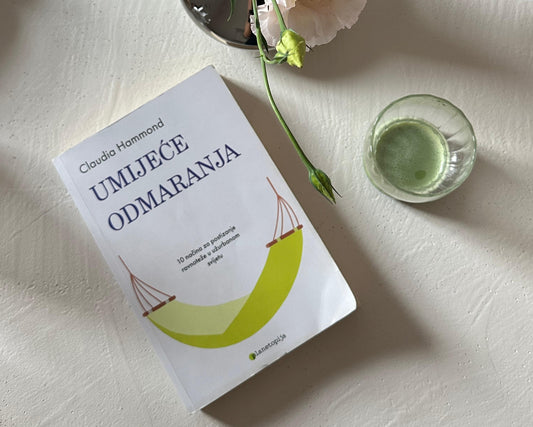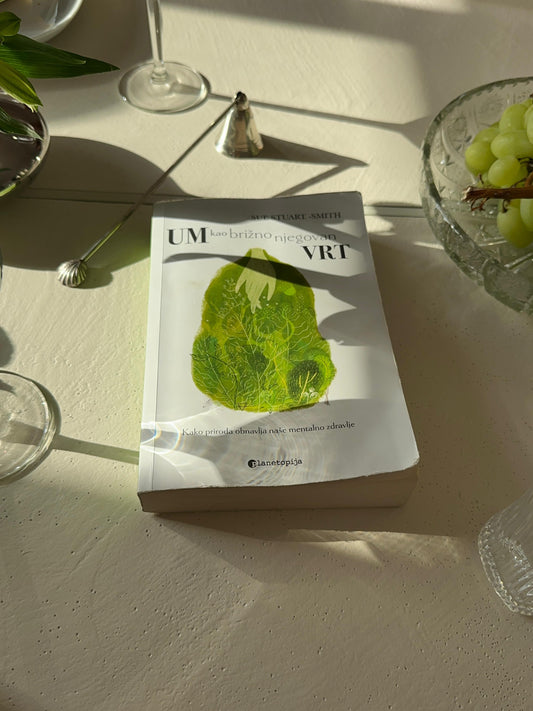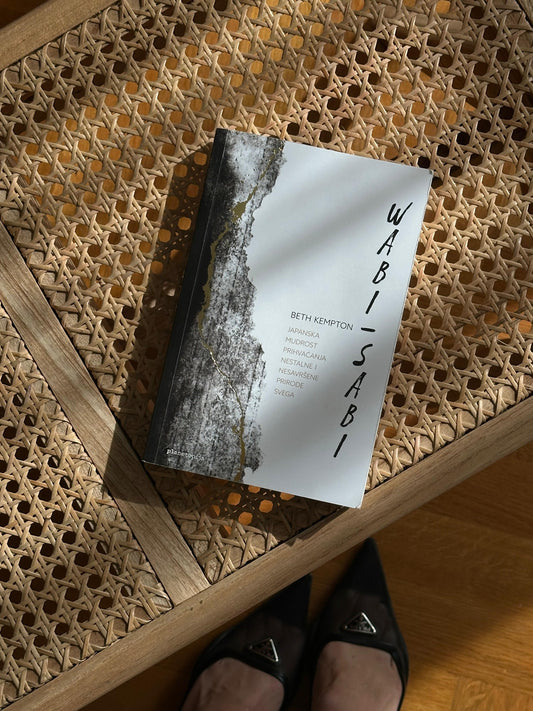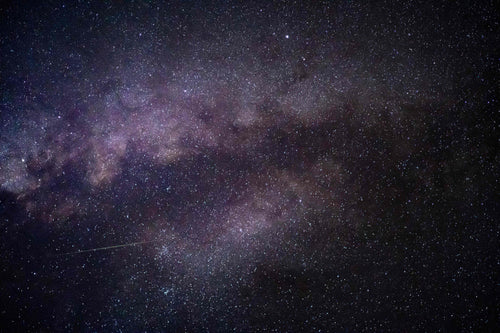Book Club: It's Not Others Who Break Our Hearts - We Break Them Ourselves
In April, the Materia Book Club read the book Never Break Your Heart Again by Meggan Roxanne. This book was a reminder - quiet but relentless - that most often, it's not others who break our hearts, but we who break them ourselves.
This text is a personal, and perhaps collective, inventory: how we break, how we protect ourselves, and where healing even begins. The book's author Meggan Roxanne asks: "Have you ever ignored your own needs just to make someone else feel happy, even if you felt you were betraying yourself?"
Already at this first question, many of us fail. By reading this book, we rediscover our own life magic.
We don't break suddenly. That's a myth.
Most heartbreaks happen gradually, through a series of small compromises, unspoken moments, and inner surrenders that no one else notices. Most often, we don't even notice them ourselves. That's the weight of breaking up with ourselves. This breakup doesn't happen as an explosion, it's not intentional, it's actually a quiet withdrawal.
In these situations, we often lose the instinctive, intuitive, and true in us, and our heart is silent because it's no longer sure if we'll take it seriously.
Here are some of the most common reasons for breaking our hearts:
We break it every time we're silent, even though we know we should speak
It's not a silence of wisdom, but a silence of fear. From the belief that our words will bother someone, be too much, cause conflict. Over time, silence becomes a reflex. We start to believe that what we feel isn't important or won't be taken seriously. The heart then doesn't stop speaking because it has nothing to say, but because it's convinced too many times that no one will hear it.
We break it when we say "yes", even though we mean "no".
Out of politeness, out of habit, out of a desire not to be a problem. And every time we do that, something in us trembles and we feel a little resistance, tension, a sign -- and yet we choose to ignore it. We learn not to listen. And when we don't listen to ourselves long enough, we no longer know what we really want.
"Pretending we have no needs doesn't make us easier to love."

We break it when we justify what hurts us.
When we find reasons for someone's behavior that diminishes us. When we try to understand someone who doesn't try to understand us. When we give new meanings to someone's absence, silence, coldness just to avoid looking at reality as it is. This rationalization isn't compassion, it's a betrayal of ourselves.
We break it when we underestimate our own intuition
When we feel something isn't for us, but we try anyway. We know something is wrong, but we choose to "be rational." Even though something in the body screams, we still go in the opposite direction. Intuition is a form of inner knowledge, and when we neglect it, we don't just lose direction, but also trust in ourselves. And it often happens to us that we stop and ask ourselves: Where did my intuition go? What's the difference between it and fear? Which voice from me is speaking?
Over time, we can learn to recognize intuition again. Sometimes through the body, and sometimes through resistance. It's usually the first reaction we're used to ignoring, but that reaction that whispers to us quietly and gently. And when we start coming back to it, we notice other things too -- like what really fulfills us. What's precious to us. And who we are when we stop being in roles.
We also break when we strive for perfectionism
**
** Seemingly, it's just a striving to be better versions of ourselves. But often, underneath it, lies a deep-rooted fear that we won't be loved enough if we show weakness, clumsiness, a mistake. We often justify perfectionism with ambition, although it's more often a masked fear of rejection.
We want to be stable, strong, responsible. We've learned (wrongly) that love is earned by effort, flawlessness, results. So we start editing ourselves, and not just on the outside, but on the inside too. We calm emotions, revise reactions, control impulses. And the "better" we are, the further we are from our authentic self. The heart doesn't break because we're not perfect. It breaks because we no longer know how to be real us.
We break when we try to heal others instead of ourselves.
This need to be a shoulder to lean on, to be those who understand, who fix, who heal often comes from a place where we didn't know how to heal our own wounds. So we turn outward and give, help, save.
Caring for others in itself isn't wrong, but when it becomes a substitute for facing ourselves, it drains us. In an attempt to save others, we forget about ourselves.
Sometimes it's easier to deal with someone else's pain than to stay alone with our own. But no real intimacy can be built from a need to be someone's healer. When we fix others instead of healing ourselves, we only deepen our own emptiness.
After the first part and reading, we pause and realize how many accurate but very difficult facts have been put on the table. They're hard to overcome when stripped like this, but then we remember what we read on the book's cover: "Even if you've wandered miles away from where you need to be, just remember that you always have the power and ability to come back home, that is, to yourself."
We just need to learn to forgive ourselves -- and leave space within ourselves for ourselves. To accept the current state and to comfort ourselves, just as we would comfort a close friend.

Self-love isn't a concept, it's an everyday practice
We're all taught from a young age how to be worthy, useful, good. But few show us by example what it's like to love ourselves. No one taught us how to treat ourselves when we make a mistake. When we fail. When we feel empty. How to value ourselves regardless of everything, how to accept and love our flaws and how to put ourselves first.
Often, putting ourselves first is characterized as selfish, egocentric, something socially stigmatized. Loving yourself doesn't mean thinking the best of yourself. It means knowing when to stop. When to say "enough" and when to step back. Self-love begins when we finally see the magic of our own lives. And then we finally start healing our heart.
Self-love is what happens when we stop waiting for salvation from the outside. When we stop trying to get others to recognize our worth, because we know we have it. And that's enough for us. It's an everyday decision not to betray what we know inside.
It's also knowing to leave when we know we should. Not responding to a message that hurts you. Saying "no" even though we know it'll disappoint the other side. Showing up for ourselves in moments when it would be easier to disappear. It's: looking in the mirror and not looking away. Not even when we're not the way we'd like to be.
How to find your heart?
There's no magic formula. But there are a number of practices that keep the heart. Here are a few that recur:
1. We learn to listen to intuition
Intuition isn't a mystical force, it's inner knowledge, usually quiet, that knows before the brain starts calculating. Learning to listen to intuition means stop convincing ourselves that we don't know. Because we do. We're just used to doubting it.
2. Give up the need to be loved by everyone
Being loved isn't the same as being seen. We can give both to ourselves.
3. We nurture rituals that bring us back to ourselves
Whether it's a walk, journaling, meditation, prayer, body movement, reading poetry -- find what reminds your heart that it exists.
4. Develop a relationship with solitude
Solitude isn't the same as loneliness. It can be the source of the greatest connection with oneself. But to feel it, we have to stop running away from it.
5. Allow yourself imperfection
Being whole doesn't mean being ideal. Wholeness includes wounds and strange thoughts. And weaknesses. Loving yourself means stop looking for a version of yourself that'll deserve love, and start loving this one that exists and that may be clumsy, confused, changeable.
6. Connect with your inner child
The child in us isn't childish, it's brave and waiting for us. A question we rarely ask ourselves as adults is: are we exploring our potential? Or just surviving? What haven't I done in a long time? Have I learned something new?

We're coming back home, that is, to ourselves
Even the loss of ourselves doesn't necessarily have to mean the end. It can be a beginning, a return, a reminder, and a healing.
We return to ourselves every morning when we look in the mirror and don't say a single ugly word in our head. When we choose a peace that doesn't come from pleasing others, but from consistency with ourselves.
Who taught us that we only have one chance in life? The magic of life is precisely that we can start over at any moment, we can change our minds and we can stop. This book is a wonderful reminder of this magic of life.











